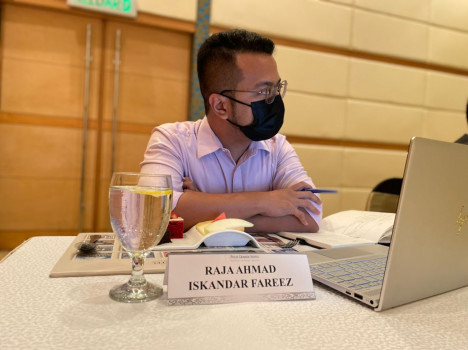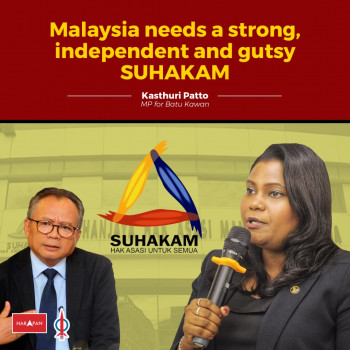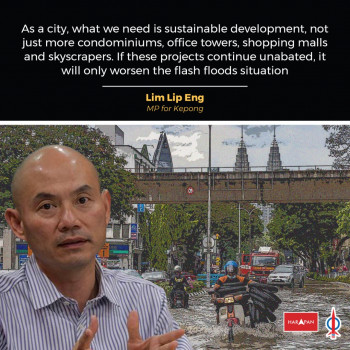by Azira Aziz
I’m going to set the record straight on the following issues regarding Sultan Kiram (and the 2 other claimants to the throne)’s allegation that they are the landlord, we are paying rent, and so they want the land back. That is pretty much the justification of current terrorist/militant attacks of innocent civilians in Sabah. I humbly warn you that I’m no academic or a historian. I’m a young lawyer, and so I will only interpret the law.
1. The 1878 Agreement
It is claimed that there are two versions of the 1878 Agreement between the Sulu Sultanate and Spain. The generally accepted as a valid document is the British version which can be found here.
The second version, allegedly the original is in Sulu dialect and written in Arabic alphabet. I have made requests to Filipino lawyers as well as the trusty world of Google, but the only clear version I received is from a man via Twitter and it is a photograph of a photocopy.
It is trite law that a photograph of a photocopy of a document is not admissible in Court except when both parties are in agreement or where the maker of the documents will be called to testify in Court of its legitimacy. Both obviously not the case here. For obvious reasons, I will analyze the matter with the premise that the second version is nonexistent.
Note: The Americans kept their original copy of the original Declaration of Independence since 1776 in pristine condition today. If it truly existed, the Sulu Royal Family should have had the presence of mind to keep it in at least fair condition until today.
2. Rent/lease or cession?
This is the translation of the 1878 Agreement between the then Sri Paduka Maulana Al Sultan Mohamet Jamal Al Alam Bin Sri Paduka Al Marhom Al Sultan Mohamet Fathlon Sultan of Sulu , Gustavus Baronde Overbeck of Hong Kong and Alfred Dent Esquire of London:
A WE Sri Paduka Maulana Al Sultan Mohamet Jamal Al Alam Bin Sri Paduka Al Marhom Al Sultan Mohamet Fathlon Sultan of Sulu and the dependencies thereof on beha lf of ourselves our heirs and successors and with the consent and advice of the Datoos in council assembled hereby grant and cede of our own free and sovereign will to Gustavus Baronde Overbeck of Hong Kong and Alfred Dent Esquire of London as representatives of a British Company co-jointly their heirs associates successors and assigns for ever and in perpetuity all the rights and powers belonging to us over all the territories and lands being tritutary to us on the mainland of the island of Borneo commencing from the Pandassan River on the north-west coast and extending along the whole east coast as far as the Sibuco River in the south and comprising amongst other the States of Paitan, Sugut, Bangaya, Labuk, Sandakan, Kina Batangan, Mumiang, and all the other territories and states to the southward thereof bordering on Darvel Bay and as far as the Sibuco river with all the islands within three marine leagues of the coast.
B In consideration of this grant the said Baron de Overbeck and Alfred Dent promise to pay as compensation to His Highness the Sultan Sri Paduka Maulana Al Sultan Mohamed Jamal Al Alam his heirs or successors the sum of five thousand dollars per annum.
C The said territories are hereby declared vested in the said Baron de Overbeck and Alfred Dent Esquire co-jointly their heirs associates successors or assigns for as long as they choose or desire to hold them. Provided however that the rights and privileges conferred by this grant shall never be transferred to any other nation or company of foreign nationality without the sanction of Her Britannic Majesty’s Government first being obtained.
D In case any dispute shall arise between His Highness the Sultan his heirs or successors and the said Gustavus Baron de Overbeck or his Company, it is hereby agreed that the matter shall be submitted to Her Britannic Majesty’s Consul-General for Borneo.
E The said Gustavus Baron de Overbeck on behalf of himself and his Company further promises to as ist his Highness the Sultan his heirs or successors with his best counsel and advice whenever His Highness may stand in need of the same.
F Written in Lipuk in Sulu at the Palace of His Highness Mohamet Jamal Alam on the 19th Moharam A.H. 1295, answering to the 22nd January, A.D. 1878.
Under contract law, you always read the clauses and documents in entirety, and in its natural and ordinary meaning. Let’s analyze the agreement. Under Clause A, it says in one line “grant and cede of our own free and sovereign will” and in another “assigns for ever and in perpetuity all the rights and powers belonging to us over all the territories and lands being tritutary to us”.
In Clause B, it says “In consideration of this grant the said Baron de Overbeck and Alfred Dent promise to pay as compensation to His Highness the Sultan Sri Paduka Maulana Al Sultan Mohamed Jamal Al Alam his heirs or successors the sum of five thousand dollars per annum.” Again, basic offer, acceptance and consideration principle in a contract.
This clearly shows that the Sultan of Sulu willingly surrendered all his sovereign rights and powers on the land over to North Borneo Company for a then handsome sum of $5000.00.Simple. It’s given to Baron de Overbeck and Alfred Dent Esquire “co-jointly their heirs associates successors or assigns for as long as they choose or desire to hold them.”
They also had the option to transfer ownership to anyone else, as long as Her Britannic Majesty’s Consul-General for Borneo gives sanction (not the Sulu Sultanate), which they eventually exercised.
Indonesia once brought Malaysia to the International Court of Justice over the nations’ jurisdiction over Pulau Sipadan and Ligitan in Sabah. In the 2002 Decision the International Court of Justice said at para 113 at page 675 & 676 that the 1878 Agreement does not cover Pulau Sipadan and Ligitan in Sabah, which is irrelevant here but most importantly they commented and affirmed that the Sulu Sultan surrendered all his rights of the territory as mentioned in Clause A:
“13. The Court therefore cannot but conclude that there is no evidence that Spain considered Ligitan and Sipadan as covered by the 1878 Protocol between Spain and the Sultan of Sulu or that Germany and Great Britain recognized Spanish sovereignty over them in the 1885 Protocol. It cannot be disputed, however, that the Sultan of Sulu relinquished the sovereign rights over all his possessions in favour of Spain, thus losing any title he may have had over islands located beyond the 3-marine-league limit from the coast of North Borneo.”
There was a subsequent agreement which the Sulu Sultan at the material time signed in 1903, which the ICJ said he had no right to sign as he had granted and ceded his rights in 1878.
3. Who owns Sabah?
No one does. Sabah is an independent State. Pre-1963 before the joining of Sabah into Malaysia, a gentleman by the name of Lord Cobbold executed the Cobbold Commission. There were referandums ran in the State, asking the people of Sabah and Sarawak what they wanted. The question then was whether they wanted to join Malaysia.
At that crucial time in history, Sabahans had many options; they could join Sarawak and build an independent Borneo, they could have joined Brunei, they could have joined Indonesia, or they could have joined the Phillipines, or they could have said, be damned with the whole lot of ye and became the Republic of Sabah if they wanted to.
The Commission released its findings, report and recommendations on 1 August, 1962. The summary of its findings is as follows:
“About one-third of the population of each territory strongly favours early realisation of Malaysia without too much concern about terms and conditions. Another third, many of them favourable to the Malaysia project, ask, with varying degrees of emphasis, for conditions and safeguards varying in nature and extent: the warmth of support among this category would be markedly influenced by a firm expression of opinion by Governments that the detailed arrangements eventually agreed upon are in the best interests of the territories. The remaining third is divided between those who insist on independence before Malaysia is considered and those who would strongly prefer to see British rule continue for some years to come. If the conditions and reservations which they have put forward could be substantially met, the second category referred to above would generally support the proposals. Moreover once a firm decision was taken quite a number of the third category would be likely to abandon their opposition and decide to make the best of a doubtful job. There will remain a hard core, vocal and politically active, which will oppose Malaysia on any terms unless it is preceded by independence and self-government: this hard core might amount to near 20 per cent of the population of Sarawak and somewhat less in North Borneo.”
—Lord Cobbold, Cobbold Commission
Sabah chose Malaysia
The referendum’s finding was that 2/3rds of Sabahans wanted to join Malaysia. Do you know that this year will be the 50th year since Sabah and Sarawak joined Malaysia on 16th September 1963? 50 years after Cobbold Commission’s findings that 2/3 of Sabahans are favourable towards joining Malaysia. After 12 General Elections, once every 5 years. Sure, Malaysians in general have issues, but Sabahans prior to this invasion by the Sulu Sultanate was eagerly anticipating the 13th General Elections just like us in Peninsular Malaysia.
This was what S.O. Franck in the World Court Digest said about Sabah’s self-determination in para 13-15 when the Phillipines applied to intervene in the matter between Indonesia and Malaysia based on ICJ’s Case Concerning Sovereignty over Pulau Ligitan and Pulau Sipadan (Indonesia v. Malaysia) Application by the Philippines for Permission to Intervene Judgment of 23 October 2001 which can be found here:
“13. The independence of North Borneo was brought about as the result of the expressed wish of the majority of the people of the territory in a 1963 election. The Secretary-General of the United Nations was entrusted under the Manila Accord of 31 July 1963 with the task of ascertaining the wishes of the people of North Borneo, and reported that the majority of the peoples of North Borneo had given serious and thoughtful consideration to their future and:
[had] concluded that they wish to bring their dependent status to an end and to realize their independence through freely chosen association with other peoples in their region with whom they feel ties of ethnic association, heritage, language, religion, culture, economic relationship, and ideals and objectives.” (Quoted by the Representative of Malaysia to the General Assembly, 1219th meeting, 27 September 1963, Official Records of the General Assembly, 18th Session, UN Doc. No. A/PV.1219.)
14. In 1963, Britain filed its last report to the United Nations on North Borneo as an Article 73 (e) Non-Self-Governing Territory (Note by the Secretary-General, Political and Constitutional Information on Asian Territories under United Kingdom Administration, UN Doc. No. A/5402/Add.4 (4 April 1963)). Thereafter, the United Nations removed North Borneo from the list of colonial territories under its decolonization jurisdiction (see Yearbook of the United Nations, 1964, pp. 411-435, which omits North Borneo from the Committee’s list of territories), thereby accepting that the process of decolonization had been completed by a valid exercise of self-determination.
15. Accordingly, in light of the clear exercise by the people of North Borneo of their right to self-determination, it cannot matter whether this Court, in any interpretation it might give to any historic instrument or efficacy, sustains or not the Philippines claim to historic title. Modern international law does not recognize the survival of a right of sovereignty based solely on historic title; not, in any event, after an exercise of self-determination conducted in accordance with the requisites of international law, the bona fides of which has received international recognition by the political organs of the United Nations. Against this, historic claims and feudal pre-colonial titles are mere relics of another international legal era, one that ended with the setting of the sun on the age of colonial imperium.”
The Court further states that if the Philippines stake a claim on Sabah, this is what it is:
“16. The lands and people claimed by the Philippines formerly constituted most of an integral British dependency. In accordance with the law pertaining to decolonization, its population exercised their right of self-determination. What remains is no mere boundary dispute. It is an attempt to keep alive a right to reverse the free and fair decision taken almost 40 years ago by the people of North Borneo in the exercise of their legal right to self-determination. The Court cannot be a witting party to that.”
Until today, I, a peninsular Malaysian need my International Passport to enter Sabah and Sarawak, just like I would have to do the same for Singapore, Thailand, and Indonesia. By right Malaysia is not one Federal State Government controlling all 13 States. The division of autonomy or sovereignity is one chunk of Peninsular Malaysia, one chunk Sabah and one chunk Sarawak. That’s how it should be based on the 18-point agreement.
By right due to Sabahans’ self-determination prior to joining Malaysia, Malaysia should have stopped payment to the Sulu Sultanate family. I presume the amount was paid to honour the agreement for the sake of diplomacy and to respect the complex ethnic ties between South East Asians.
Based on all of the above, clearly, the Sulu Sultanate has no right at all to claim Sabah. Please withdraw your terrorist militants and leave Sabah. Enough is enough.




Even if your great grandfather used to rule over sabah once upon a time from a far far away land 350 yrs ago…but…now in 2013 there is this thing called “democracy”.
You cant declare yourself a king for a country when the only person who acknowledge it is you alone.
A king is a ruler, but if there is no one to rule, then there will be no king.
No sabahan today would want to be ruled by a sulu king, so YOU GET LOST AND GO BE KING IN HELL.